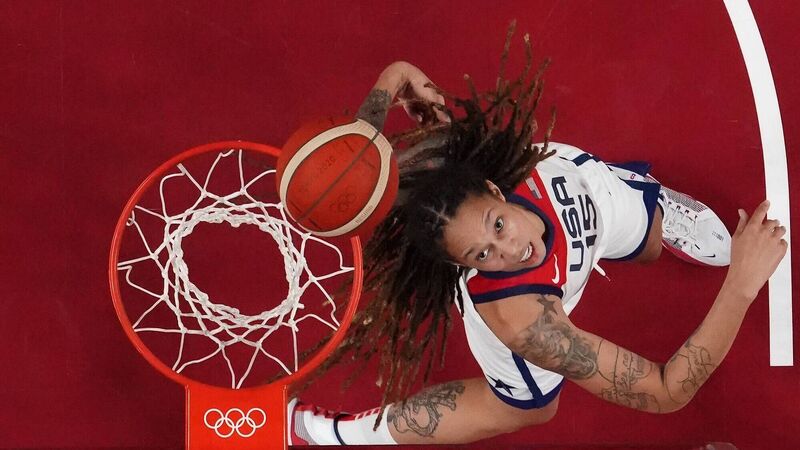John Riordan: Two US sportswomen in tough battles of their own

Brittney Griner, one of the greatest female basketballers of this past decade, has been in custody in Russia since February 17, charged frivolously with attempting to smuggle vape cartridges containing hashish oil into the country.
How does the memory of A League of their Own exist for you, if at all?
Thirty years ago this summer, the now iconic Penny Marshall directed baseball movie hit the big screens in the US and was both a critical and box office success.









